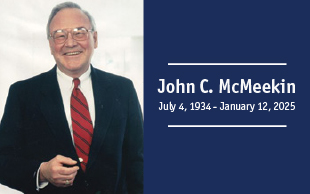Thirty-five-year-old Menton Murray started working at PHMC affiliate The Bridge almost four years ago as a mental health technician. When he saw his supervisor, Terrant Morrison, enroll and successfully complete Jobs to Careers, an educational and professional development program designed for frontline staff, he was inspired to do the same. “I wanted a better understanding of the clients we serve to further my education,” says Murray, now a supervisor at The Bridge. He left college due to financial reasons when he was younger, but always hoped to continue his education. Jobs to Careers: Promoting Work-Based Learning for Quality Care, a national initiative to develop the careers of workers in health and health care systems through on-site classes, gave him that opportunity.
PHMC began participating in the Jobs to Careers initiative in 2006 in partnership with District 1199C’s Training and Upgrading Fund and the Temple University Health System, with funding from Robert Wood Johnson Foundation and Hitachi Foundation. “Jobs to Careers helps better prepare staff to respond to critical health issues they deal with on an everyday basis,” says Jay Wussow, director for development and facility operations of PHMC’s Behavioral Health Services component.
This is a truly unique program... we have been able to help these critical staff members advance their education and professional development, thereby improving the quality of care delivered to clients."
In Jobs to Careers, participants attend weekly, three-hour, work-based learning classes taught on-site by teachers from the Training and Upgrading Fund, Outside of class, the students receive coaching from an on-site supervisor in matters directly related to their work assignments. PHMC and affiliate employees enrolled in Jobs to Careers first take a preliminary class that emphasizes basic math and writing skills, after which the curriculum shifts to focus on behavioral health practices. “My classes helped me with the terminology related to different disorders that we deal with everyday,” says Murray. “They also helped me to improve my communications with the therapist and clinical director. Now I know exactly what they are talking about.” At the conclusion of Jobs to Careers, students receive accreditation for their coursework from Philadelphia University, and the courses will count for 21 credits if the student also completes an additional nine credits at Philadelphia University. Participants are encouraged to continue studying toward an associate degree.
“This is a truly unique program," says Leslie Hurtig, vice president of behavioral health at PHMC. "Few agencies are able to invest this much in frontline staff—who often spend the most time with clients in behavioral health programs but who have not benefited from years of education or skills training. Thanks to our partnership with the Training and Upgrading Fund, we have been able to help these critical staff members advance their education and professional development, thereby improving the quality of care delivered to clients.”
PHMC supported two cohorts of students through Jobs to Careers. The first had five students from a variety of Behavioral Health Services programs including WestHaven and Interim House West, as well as PHMC affiliates The Bridge and Interim House Inc. Anita Williams, facilities manager at Interim House West, participated in the first cohort. She had not been in a classroom since 1974 when she graduated from high school. “My peers kept me motivated on the days I felt stressed,” she says. “It was very exciting to be back in school, plus I got to relate what I was learning at school to the wide range of clientele we serves.” Williams credits her coach at Interim House West, senior therapist Veronica Coleman, for helping her navigate through coursework. “She was an excellent coach,” says Williams. “Anything I didn’t understand, she broke it down and explained it back to me.”
The second cohort includes five employees from The Bridge. Michael Ogden, director of The Bridge, continued to sponsor employees for a second cohort after seeing the positive impact Jobs to Careers had on those in the first cohort. “Jobs to Careers allowed us to provide quality training with minimal interruption to the work day,” says Ogden. "It is an innovative approach to offer quality training in a cost-effective manner.”
For Murray, Jobs to Careers helped to fulfill a long-time personal goal that he believes will help his career in the future. “There are a lot of opportunities for me at PHMC,” says Murray. “I have everything right here that I need.”





